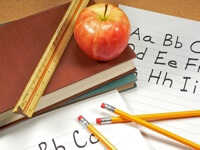Life in Great Britain
Typ práce: Referát
Jazyk:
Počet zobrazení: 14 300
Uložení: 733
Life in Great Britain
The British are very polite and have good manners - they are never tired of saying „Thank you“, „I am sorry“, or „Excuse me“. The English word „gentleman“ mean a man with good manners all over the world. But they are also said to be very conservative and „keeping himself to himself“ - they e.g. don’t shake hands or kiss hello as people on the (European) Continent. They try to preserve their privacy, sometimes they are cold, but always use their dry humour (jokes which concern Scottish people are also popular). The British are nowadays still too conservative (that) they aloof and don’t accept even high educated people who are foreign citizens - a bipolar society is everyday fact in Britain. The biggest mark of their conservatisme is their system of weigts and measures, which they changed into decimal in 1971. On the other hand there is a long tradition of charity, which is ordinary and obvious part of the British lifestyle.
They are also proud on their currency, so they refuse to pay and use a new currency Euro. A thing, that we mostly don’t agree with, is their system of school uniforms, wearing of these uniforms is obligate. When someone pronounce a word „English man“, we imagine a typical english gentleman, who has a good behaviour, he is gallant and polite. On the other hand, there still exist the groupes of young people, especially men, whose name is hooligans and they don’t fill the signification of world gentleman.
Kurssi englannin punta (GBP) - Yhdistynyt kuningaskunta
They like spending their leisure time at home with the family and pets in their houses - the main stage of an Englishman’s social life is the family, the job and the club. Not only the motto „My home, my castle“ explain that about 60 per cent of houses in Britain are owned by people who live in them. They also love and follow one’s traditions, like the „tea ceremony“ around 5 o’clock p.m.
The British are also the democratic people and the world-famous saying „time is money“ shows the practical side of the British character indeed. The normal working week has five days. Factory workers usually start at 8 a.m. and offices, shops and schools open at 9 a.m.. Workers have 3 weeks holidays and professional workers (people with higher education) have usually longer holidays (a month and more). Except of these holidays they have public holidays: e.g. New Year's Day, Good Friday, Easter Monday, Christmas day and Boxing day.
An average Englishman likes to live in his own house. Houses are made of red bricks, stone and wood. The houses usually have from 4 to 6 rooms, two floors, small front and back gardens. On the ground floor there is a hall, a kitchen, a living room with a fireplace and on the first floor there are parents' and children's bedrooms and a bathroom. The prices of houses depend on the area - the most expensive are the houses in London and South England (about 200.000 pounds), smaller houses in other areas may cost about 50.000 pounds.
Social Welfare - The national Health Service gives largely free treatment for everyone living in Britain. People can choose their family doctors. In case of emergency you can call the ambulance by dialling 999 from everywhere. Health centres are run by local authorities. About 7 per cent of hospitals, dentists and family doctors work as private.
There are about 130 daily and Sunday newspapers and a lot of weekly papers and magazines. The oldest newspaper is The Times. Other famous newspapers are Daily Mirror, Daily Mail, Financial Times etc.
In Britain, the taditional red phone boxes have been replaced by more modern steel and glass ones by the BT (British Telecom). However the public started to protest and some of the old style boxes were preserved. We use coins (10pences) or telephone cards to phone from the boxes.
Postal service: A snail mail is a humorous term for the old fashioned letters-in-envelopes. In Britain, the postal service (The Royal Mail) was not privatised and the head of the Queen is on all British stamps.
Radio: The world famous British radio station is the BBC because they have their BBC World Service, which broadcast in 37 languages. The seat of the BBC is in London.
Broadcasting in BG and CZ
TV: 5 channels: BBC 1, BBC 2 (these two don’t have adverts), ITV, Channel 4, Channel 5, + satellite programs
Sport: Many sports have their origins in GB, that why Britain is sometimes called the cradle of sports. Two types of rugby, modern game of hockey, cricket, darts, tennis and boxing were invented there. The very national sports in GB is cricket, golf, soccer or lawn tennis. We can find some major sports in Britain: Wimbledon (the Grand Slam Tennis Tournament), The British Open Golf Championship, The Grand National (it is the best known horse-race).
The weather in Great Britain
In Britain the weather is very changeable. It rain a lot, but the sun often shines too. Winters can be fairly cold with an average temperature of 5 centrigrades in the south, it often snows there. Summers can be cold or warm but the temperature does not usually go above 30. It is often cloudy and they are sometimes grey skies. Days are long in summer and short in winter. They is sometimes fog but not so often as foreigners think. British people never know what tommorow's wheather will be like. The climate in England is milder than in order European countries and it is often the subject of much talk. English people often complain of the weather and say the climate is damp and rainy.
The south of England is especially lovely. In the northern part of England and in Scotland summer are a little colder than in the southern part. Children like winters very much because snow is great fun for them Britain has a mild and rainy climate, although during the winter months easterly winds may bring a cold, dry continental type of weather. During a normal summer, the temperature occasionally rises above 27 degrees in the south, winter temperatures below - 7 degrees are rare. The average annual rainfall is about 100 centimetres. Rain is fairly well distributed throughout the year, on average, March to June are the driest months. The coldest month is January and warmest are July and August with average temperatures of about 16 degrees. June has the best record for sunshine.
Eating
British people have differnt eating habits.They have five or six meals a day: breakfast, elevens (a morning snack), lunch, tea, dinner and later perhaps supper. The English breakfast starts with a glass of juice and a cereal, usually with milk or cream and sugar, or porridge. This will be followed by fried or grilled bacon and eggs, sausages and grilled tomatoes… They round off with many cups of coffee rather than the tea and buttered toast and marmalade.
In the middle of the morning they have elevenses, which is usually not more than a cup of coffee biscuits. Sometimes, often at the weekends, when they get up later,they have brunch, a combination meal which is eaten for breakfast and lunch.
The midday meal is generally called lunch, it consists often of a hot dish, a salad, ham and cheese sandwiches, pizza, hamburgers and a dessert.
Around four o clock it is teatime. While in our country an afternoon snack common, in Britain it is a special occasion. The traditional tea consists of thin slices of white or brown bread and butter with with cheese, fish or ham, perhaps some vegetables and jam, cakes, fruit pies… The hot dinner which is served around 7 o’clock may have three or four courses. It consists of soup or some other starter, then the nain course (meat and fish with vegetables) which is followed by a dessert ane finally perhaps cheese and biscuits. For drinking-they may have beer,cider or wine. Later in the evening they take sandwiches, bread and butter, cheese, biscuits, cocoa, milk, tea… On some special occasions such as Christmas - roast goose with dumplings and cabbage, Wiener schnitzel with potato salad or roast turkey with potatoes- there is no traditional meal, but many fanalies prepare! The British Christmas Day is roast turkey with chestnut stuffing, potatoes and renowned Christnas pudding and mince pies as asweet.
However the Czechs hurry with breakfast, the British often start with a cup of tea still in bed. Traditional British breakfast consist of a glass of fruit juice and cornflakes with milk. Of course they drink the morning tea or coffee. Big cooked breakfast morning meals are often called „brunch“ - breakfast and lunch together - and consisting of boiled or scrambled eggs or fried bacon and egg with bread. Lot of people like toasts with butter and marmalade or honey. About 1 o’clock there is usually lunch time in Britain. The British eating habits have changed over last thirty years - many families now prefer to eat out in restaurants or cafés. The typical British break time - teatime - is about 4 or 5 o’clock p.m. but nowadays it is more a social occasion than a regular meal-time. This 5 o’clock tea is usually fairly strong and eaten together with some cakes or biscuits.
About 6 o’clock most family have their evening meal – „dinner“. It may be cooked or cold. Typical British meal is pudding. They have many kinds of puddings and the preparation of this meal usually last several weeks (or months). Especially Christmas pudding, made of eggs, chopped candied peel, mixed dried fruit and shredded suet, and finally poured over by strong brandy and lighted, belongs to the famous British speciality.
| Podobné práce | Typ práce | Rozsah | |
|---|---|---|---|
|
|
Life in the past and today | Maturita | 295 slov |
|
|
Country Life and City Life | Referát | 636 slov |
|
|
Life in Britain and in the USA | Referát | 1 071 slov |
|
|
Was Life in the Past Better or Worse than Today? | Maturita | 210 slov |
|
|
Healthy way of life | Ostatné | 475 slov |
|
|
My future carrer and my future life | Ostatné | 435 slov |
|
|
Life after 50 years | Referát | 278 slov |
|
|
The UK - Way of life | Referát | 1 003 slov |
|
|
Life in the Future | Ostatné | 630 slov |
Vyhľadaj ďalšie študentské práce pre tieto populárne kľúčové slová:
#great britain #life in great britain #British vs. Slovak – manners, habits #lifestyle in britain referáty #life in gb #live in great britain #british lifestyle #CZECH AND BRITISH LIFESTYLE #great britain referáty #lifestyle in Slovakia and Great Britain #english tea #course of life #lifestyle in britain zones #life in britain #Life in Slovakia #eating habits in Britain #britain #typical british breacfast #lifestyle britain #great britain traditions















